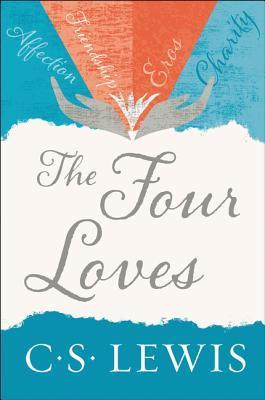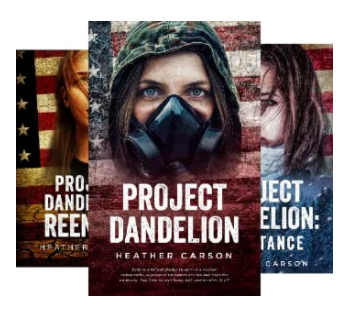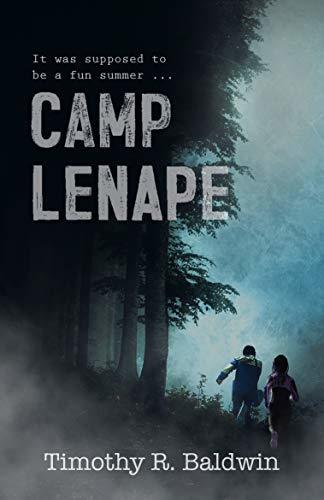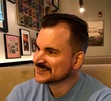Timothy R. Baldwin's Blog
July 8, 2020
An outdated summer camp, a quirky camp director, and a dark secret
The setting for my first book, Camp Lenape (A Kahale and Claude Mystery, Book 1), was a summer camp about as quirky and outdated as its camp director.
When I first toured the place in 2016, I was shown a beautiful estate upon which was built years ago a baseball camp for boys that eventually evolved into something far more inclusive. Yet, the campgrounds consisted of an odd assortment of ancient and not exactly new equipment and facilities.
Sports fields and tennis courts way too small to be regulation size or of much use to even the kids they were designed for.Two log cabins that served as changing facilities for the kidsAn open fitness center built by the director’s father sometime in the fifties,A baseball training tool that looked more like wiffle balls attached to a waist-height zip lineAn obstacle course A bathwater temperature pool with way too much chlorineA tennis court to small for even kids to play onAnd several other randomly placed buildings and aging equipment that hadn’t been used in years.With a sweeping gesture, the camp director boasted that his father built all this, he inherited it, and one day his own daughters would take over.
As camp began, I understood more and more what the camp director meant. Maybe he was from a different time. Maybe my ten years of teaching taught me lessons this guy could never learn. He was too strict, too long-winded, and too set in his ways to be someone today’s kids would enjoy being around. Balding with a greying mustache and a toothy grin that never seemed to make it to his eyes, he seemed to pop out of nowhere, waving his finger, saying, “Don’t do that!” or “That’s not the way I would do it!”
Then there were the “secrets” told in hushed whispers amongst the staff. A version of these secrets became the starting point for the storyline that would become the basis for the first draft of Camp Lenape. Fortunately, pieces of the first draft were nixed for being much too dark to be appropriate for middle schoolers. So, I lightened it up, maintaining the same level of mystery and suspense, with just enough darkness for the main characters to inspect, and eventually overcome as they learned important lessons about teamwork and friendship.
Thanks for reading. I’d be thrilled if you order a signed copy direct from me to you, if you order a copy from Amazon, or if your order from your favorite retailer.
June 6, 2020
Getting Away With it
When we think we can get away with it, we are all capable of harming another human being to get what we want.
Fortunately, most of us will not commit heinous sins or crimes, as have been seen in recent days. But, if we are honest with ourselves, we are no different than anyone else.
Every single one of us can identify a time in our lives when we got what we want and harmed another person. Our harm to the other person may have been intentional, or it may have been an accidental consequence.
Nonetheless, in our heart of hearts, we did it because we thought we could get away with it. Or, we didn’t care at the time what the consequences were.
In a human court of law, there are varying degrees of crimes. Thus, we measure ourselves accordingly, saying, “Well, I’m not as bad as that guy.” Or, “I’m not as bad as those people.” The standards of our laws justify us in our own eyes.
But that is an extremely limited understanding of crime. It doesn’t shed light on the reality of sin. Saint Augustine cautions us on treating too lightly those “tiny sins.” A lifetime of them will amass a great heap, one so great there is no way we could justify ourselves by saying, “It’s no big deal.”
Whether you’ve vandalized one wall or destroyed an entire building, you are still a vandal. Whether you’ve stolen a toy from a friend, or stolen money from a cash register, you’re still a thief. I could also go on to talk about how hatred of your neighbor (for the reason of race, socio-economic status, or jealousy) is still hatred.
Hatred.
It comes in many forms, pretending to be more dignified, proudly lifting itself over others. In whatever form hatred manifests itself, it is the same within all of our hearts. As we all possess the ability to hate, so we all possess the ability to hurt another person to get whatever it is that we want at that moment.
Hatred is worse than a failure to love. It is a poison we drink ourselves, corrupting us from the inside and bringing death to every aspect of ourselves and those around us. Thus, anyone who hates his neighbor is a murderer. Hatred destroys life, and it destroys love, driving those who harbor hate within their hearts to the act of murder itself. One cannot simultaneously say they love their family but hate their neighbor. There is an irreconcilable duality at work within their hearts. Eventually, hatred of neighbor will taint and destroy the love of family.
The only difference between one who harbors hatred and one who does not is the conscious effort to fight against our natures to hate what and who we do not understand. Let’s make a similar comparison between those who take advantage of a situation and those who do not. One wreaks havoc and causes further harm to the neighbor they claim to love. The other brings life and healing to the neighbor they love and the stranger they are choosing to love.
All of us are capable of change. All of us can work harder each day to be better: more loving, more kind, more compassionate. But it is a conscious choice made each day to sacrifice self for the other person’s well-being. Little by little, what begins as a trying act becomes the very first thing we do when we see someone in need, because in that person we see ourselves, a fellow human being.
I’ll close where some may diverge from this line of thinking.
I believe we can never escape what we’ve done. It’ll always mar us. No matter how much good we do, it could never redeem the bad we’ve done in our lives. We cannot erase the mountain of “little sins” from our past, just like the murderer cannot bring back to life the victim of their crime. In this lifetime, there will be consequences for our actions, but those consequences will only be a shadow of the justice we all deserve. The wages of sin is always death.
That is why God came to us in the person of Jesus Christ. We cannot escape the just punishment for the heap of sin we’ve committed in our lifetime any more than the consequences of one single grave sin, like murder, can be escaped.
Should we lay down our own lives to make amends for our sins, it would not be enough. We are not perfect enough; we are not righteous enough; we are not good enough. Even our act of “self-sacrifice” would be motivated by a selfish desire to eradicate the guilt weighing us down.
The good news is this. Motived by perfect love, Jesus Christ offered himself entirely in our place to pay a debt we could never pay.
He didn’t have to suffer and die for our sins. Indeed, at the snap of a proverbial finger, God could have forgiven the sins of all humanity. But, in doing that, he would have removed from us the free will endowed to us by our Creator. Instead, God chose another way, one that would truly show us the magnitude of His love. Already bloody from hours of severe torture, Jesus Christ allowed sinful humanity (that’s you and me) to stretch out his arms and drive nails into his hands and feet. In doing that, he offered himself as a once for all sacrifice, paying a debt we could never pay no matter how much good we attempted to do.
If you’ve ever struggled to do good and avoid evil, you will have encountered frustration in this struggle. Though we love our friends and family, we still manage to hurt them. Though we feel bad for the poorest among us, we still manage to pass them by right on the street. The good we want to do, we do not do, and the evil we do not want to do, we do. We are frustrated at ourselves because numerous times, over and over again, we hurt and continue to hurt other people.
The Gospel is this.
While we were yet sinners, Christ died for us. In His death, he took on the just punishment due to us all. As a result, He justified us in the eyes of God. Yet, not all will be justified. God will not force us to choose Heaven any more than He will force us into Hell. Though He desires us all to enter in Heaven and avoid Hell, He loves us too much to usurp our free will by forcing upon us something we do not want. The choice to accept Christ is ours alone to make.
Thank you for reading to the end.
June 3, 2020
The Four Loves, A Brief Review
In this little book, The Four Loves, C. S. Lewis delves deep into the complexities of love. He sets the stage by making a distinction between likes and loves. Then he delves into the four loves themselves: Affection, Friendship, Eros, and Charity.
I must say, this book is like a rich cake or a well-cooked steak. It can only truly be enjoyed and appreciated in small parts, with breaks in between. I found myself putting the book down and leaving it for days on end as I meditated on the ideas presented to me.
One of Lewis’ closing remarks, in response to whether our beloved (friends, family, or lovers) will be known to us in Heaven. He says, “love that had never embodied love Love Himself” would pass away. For in Heaven, only the eternal is resurrected and renewed.
While this idea may give one a glimpse into Lewis’ thought process, it doesn’t do it the justice a full and careful read would. Only to say that affection, friendship, and eros must take a knee to Charity, which is most like Love Himself.

Needless to say, I think everyone, even the non-Christian, should give this little book a read.
June 1, 2020
Renewing the Face of the Earth
I write this a day after Pentecost Sunday. For those who do not know, Pentecost marks the celebration of the birth of the Church. It was on this day that the disciples were in the upper room. They were filled with the Holy Spirit, empowering them to go out into the world as bearers of the God’s love.
In the upper room, Jesus appeared to the disciples. They were afraid, hidden from the world. Jesus said, “Peace be with you. As the Father has sent me, so I send you.” And when he had said this, he breathed on them and said to them, “Recieve the Holy Spirit. Whose sins you forgive are forgiven them, and whose sins you retain are retained” (John 19:23).
What is the Holy Spirit? The Holy Spirit is the chain of love, a unifying force amongst all believers. Indeed, amongst all people. But, more specifically, in the Church. In the early days of the Church, Tertullian (155 to 220 A.D.) observed the depth in which Christians love each other. In the early days of the Church, Christianity spread rapidly and worldwide, not by force, but by faith and love. Jesus said to his disciples, The world will know you are my disciples by your love.
What is love? It is willing the good of the other. In the workplace, and the world, how much do we indeed do that? How much do we love our neighbors? The history of this country has been marked by systemic and personal racism, and by a spirit of individualism. One doesn’t have to go far to see the lack of unity amongst us. Amid COVID-19, and now the death of George Floyd, this country is in turmoil.
For myself, I recognize the signs of sin. I see it in the outright criticism of the actions of others, especially on the cesspool of toxicity that is social media. I also see it in the way groups take advantage of the hurt of others by offering a brick, by inciting a riot that destroys whole neighbors, and by pointing the finger of blame on one racial group. It is so easy to say those people. There’s no love in that.
Bishop Robert Barron, in his Pentecost Sunday Homily, challenges us to affect a real divinizing change in our culture, one that will draw others into the unifying Love of the Holy Spirit. For some, that may look like marching in solidarity with those most affected by recent events. For others, that may be petitioning our local, state, and national representatives to enact lasting change in our culture. For others, it may be a call to consider carefully the tone and truthfulness of what we post on social media.
For all of us, if we genuinely want to end the personal and systemic racism in our world, we must look to ourselves and the way we treat our neighbors. Can we say we love our neighbor? Do we will the good of every person we meet?
In the parable of the Good Samaritan, the one who was the most neighborly was the one who showed kindness to a fellow human being. Indeed, this person who showed the most compassion, who most loved his neighbor, was the foreigner, the one of a different race. This man most desired the good of a stranger, beaten until nearly dead. He did this at significant personal and financial cost as well. It was this man, a nobody, and not the most influential, who brought healing to the life of a man in need.
Most certainly, by our acts of love, we can overcome hatred and violence within our communities. By our acts of love, we will bring about unity in our churches, our communities, and our nation. But, love is not all this world needs.
What the world needs now is the unifying force of love that is the Holy Spirit working through a unified Church. Then, and only then, will we truly overcome the hatred, violence, and sin in this world. For where God’s love reigns in the heart of a man or woman, there is no room for hatred, violence, and sin.
We cannot do this alone. But we can look within our hearts, fall on our knees in repentance, and go out empowered by the Holy Spirit to renew the face of the earth.
Come, Holy Spirit, fill the hearts of your faithfuland enkindle in them the fire of your love.V. Send forth your Spirit and they shall be created.
R. And you shall renew the face of the earth.Let us pray.
O God, who by the light of the Holy Spirit,
did instruct the hearts of the faithful,
grant us in the same Spirit to be truly wise
and ever to rejoice in His consolation.
Through Christ our Lord.
Amen.
For Bishop Robert Baron’s Full Homily, watch it here beginning at 8:43, and click here for the readings.
May 11, 2020
Book Review: Blowback by H. Max Hiller
“I have answered to a number of things: nicknames, military ranks, and more or less profane epitaphs in my thirty-seven years.”
Cue voice-over on black and white gritty film role, and that’s the feel you get from BLOWBACK, H. Max Hiller’s hard-boiled detective novel. ‘Cadillac’ Holland is assigned to a case by his boss, Avery, who knows full well Holland would do nothing by the book. While not fast-paced in any way, the pacing is perfect for this genre. As clues drop throughout the narrative, the reader is encouraged to piece the case together right alongside of Holland as he pursues one lead after the next.
Not only did I enjoy being an armchair detective alongside of Holland, but I also enjoyed the character development. Hiller has well developed minor characters in Avery, Tony, and Holland’s sister, Tullip. He created each with their unique quirks and ways of interacting with Holland that made the story feel real. Not to mention the care he took to create a post-Katrina New Orleans in which a reader could immerse themselves.
I look forward to more by H. Max Hiller and his ‘Cadillac’ Holland series.
May 7, 2020
Free Book… Sort of.
If you’re like me, you impulse buy just about every moderately intriguing ebook that happens to be free. You can get these books in as many places as they happen to be advertised or housed. If you’re like me, you buy them, thinking that one day you might want to pick up and read. But, we all know that rarely, if ever, happens.
That’s sad.
Because the book isn’t free. It cost the author countless hours of time pouring over the work, making sure it would be the best it could possibly be. I know I’m not stating anything revelatory here. But, we’ve got to keep in mind the author has put this book out there as a temporary or permanently free copy in the hopes of getting something back.
That’s right.
The book, while it may appear to be free, requires action on your part. First, of course, read it. Then, leave an honest review. If the work didn’t speak to you, say as much. You might even add a reason why, or even recommend the work to a more suitable audience.
Authors like reviews. Authors like criticism.
So, be honest, but don’t be mean.
Think about one way you think the book could have been improved. You don’t have to be long winded. You are reader who honestly wanted to enjoy the book, but for some reason couldn’t enjoy it as much as you wanted to. Maybe something feels off about the sentence structure. Maybe characters or plot seem underdeveloped. Whatever the reason, give the author some kind of criticism.
Authors want to hear from their readers.
Speaking for myself, when I finalize a work and push out for publication, I can confidently say it could, at that time, be no better than it is. But, going forward, I want to make the next work even better. In writing the next book, it helps to know from my readers how I can make the reading experience even better than the last.
So, I close on this note. As a way of saying thank you for taking the time to read this blog, my first book, Camp Lenape(A Kahale and Claude Mystery, Book 2), is currently free on Smashwords.
Consider grabbing a copy before May 31, 2020: https://www.smashwords.com/books/view/989319
When finished, let me know what you thought by posting a review on your blog, your favorite book site, or your favorite social media platform
Use #CampLenapeBook or tag me @timothyrbaldwin on Twitter or Instagram and I’ll send you Shadows of Doubt (A Kahale and Claude Mystery, Book 2).
April 26, 2020
Mayhem by Ashley Fontainne (Book Review)
Ashley Fontainne once again thrills and inspires her audience in another installment of the Legion Series. Mayhem completes the character arcs of Tyler Drexell (now Tidwell) and his former girlfriend, Miranda Wilson, and her mother, Margaret Wilson. Fifteen years ago, Tyler lost his family to a demonically influenced tragedy that would have both temporal and eternal consequences for himself, his adopted family, and Margaret and Miranda Wilson. Mayhem begins with another life-changing event for Tyler Tidwell. This event pours fuel on the fire of pent-up anger stemming from the loss of his family as a child—thus opening himself to the demonic forces hell-bent on using any means necessary to eternally ruin or cripple God’s call on Tyler’s life.
Mayhem is an inspiring novel that brought me face-to-face with the reality of demonic influence in our everyday lives. While most of us won’t ever experience a physical manifestation of evil in our lives, all of us will make choices that open us up to an occasion of sin that, if left unchecked, could lead to much more terrifying consequences. In this story, Fontainne uses the memory of the Drexell house as a representation of sin and the demonic hold on Tyler’s life. It is this past that Tyler must battle with after a reminder to be on guard because the Devil is a roaring lion seeking the ruin and destruction of souls. In addition to the spiritual elements present within this story, Mayhem blends aspects of contemporary family drama and the thriller genre to bring the reader a truly remarkable and engaging tale about the lasting and potentially devastating consequences the choices we make in response to tragedy can have.
Reviewed by Timothy R Baldwin for Readers’ Favorite
April 19, 2020
Review of Project Dandelion: Resistance
Heather Carson brings us the final installment of the Project Dandelion series. The characters are raw survivalists for whom I found myself rooting from Book 1 to the end of Book 3.
The series follows the story of Katrina and her friends, from the time she wakes up in a sealed bunker, to the time she, with her friends reenter a world changed by disaster, to finally the time she is resolved to save, not only herself, but the friends who have become her family.
Throughout this series, Katrina’s own will to survive is tested as loyalties are formed. I believe Carson’s series belongs aside many of the great post apocalyptic ya books written. However, this story is so much more than some of the ones that may come to mind. Indeed, the characters feel much more believable and their survivalist tactics much more realistic than ”those other books”.
I can’t wait to see what Heather Carson has in store for us next!

From Book 1:
-Sent to a fallout shelter to survive a nuclear catastrophe, a group of teenagers are the last hope for humanity. Can they survive living with one another first?
Katrina knew this day would come. She had been preparing for it all her life. The end of the world was here, and it looked nothing like she had imagined.
Now she was trapped in an underground fallout shelter with a group of teenagers who had been selected as the last hope for humanity. The idea of surviving the nuclear apocalypse alone blurs as she makes friends, and finds love, while buried beneath the earth.

February 17, 2020
Camp Lenape by Timothy R. Baldwin
Camp Lenape is a “terrific mystery for young adults. Suspenseful, thrilling, adventure at its best!”
Thank you, Julia!
I’m thrilled to read this unsolicited review! Even more thrilled that you chose to read this, my debut novel, and write about it!

Even if you never went to summer camp this is a terrific mystery for young adults. Suspenseful, thrilling, adventure at its best! Follow four middle school friends as they spend the summer working as junior counselors at Camp Lenape. Working at the camp is a lot different from being a camper now that they are responsible for being not only role models all the time but moving the campers from one event to the next every day. Unfortunately, not everything is on the up and up.
Alissa, Janice, Nate, and Marcus are all typical kids but when Marcus’ little sister goes missing they rise to the occasion by going on a mission to find Bri. The story finds them dealing with no outside communication, the wilderness around the campgrounds, an old haunted cabin, fake police, and drug dealers. The four have to use their brains, stay calm and brave to…
View original post 85 more words
January 3, 2020
Madness, by Ashley Fontainne (Book Review)
Reviewed by Timothy R. Baldwin for Readers’ Favorite
Madness (Legion Novella Book 2) by Ashley Fontainne is another compelling story, tracking the psychological and spiritual conditions of a soul ripe for demonic harvest. This story picks up ten years after book one. It follows the story of eighteen-year-old Tyler Tidwell, who is the sole survivor of the murdered Drexel family and is now the adopted son of retired Sherriff Clyde Tidwell. The demon from which Sherriff Tidwell rescued Tyler made a promise to return when the time is right. And that time is now. Somehow, it’ll be up to Clyde Tidwell to once again fight on behalf of his adopted son, who doesn’t even know what kind of hell he will be facing.
Ashley Fontainne is a master of creating the prose needed to capture the depths of Tyler’s psychological and emotional torture, and the effect this has on him spiritually. As a result, the pacing of Madness is necessarily slower than the book’s predecessor, Many. Because of this, Fontainne’s prose, especially in her dialogue and description, does what action alone couldn’t do, which is to draw the reader into the familial bond that ties Clyde and Tyler together.
While the Christian and the Secular could still enjoy Madness, alike, this story reads as though intended for a very defined audience of church-goers. Additionally, I thought the balance between exposition, climax, and denouement was a little off. As a result, the heart of the conflict of this story, the battle over Tyler’s soul, may have been underdeveloped, especially at the point of climax. Nonetheless, I enjoy the story and look forward to more in this series.




